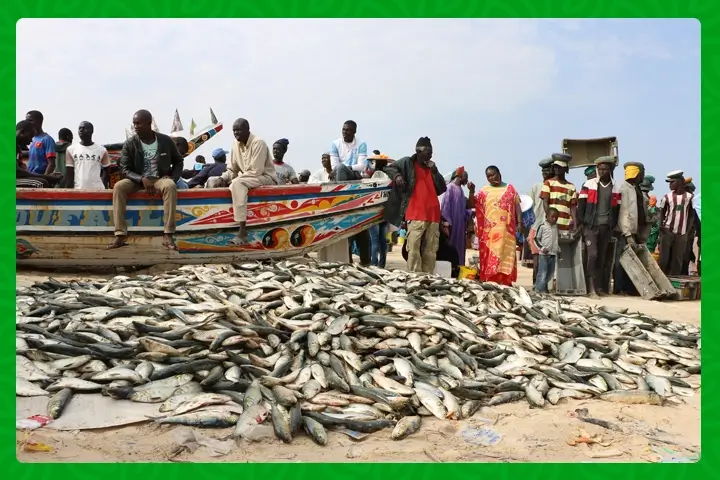
At a pivotal moment, Senegal stands at a crossroads as it re-evaluates its fishing agreement with the European Union (EU). This decision comes amid shifting dynamics within African fisheries, where local control is increasingly favored over foreign exploitation.
Historical Context: The Rise and Fall of EU Fishing Dominance in Senegal
In the mid-2000s, Senegalese small-scale fishers vehemently opposed a fishing deal with the EU, which permitted numerous industrial vessels to exploit various fish species in Senegalese waters. The opposition reached a climax, forcing the then-president to allow the agreement to lapse in 2006. However, in 2014, a subsequent administration signed a scaled-down version of the deal, allowing limited access to 36 tuna vessels and two trawlers. This agreement, extended in 2019, is now set to expire in November.
Newly elected President Bassirou Diomaye Faye, who campaigned on the promise of potentially suspending the existing deal, embodies the evolving sentiment in African fisheries management. While it remains uncertain whether President Faye will follow through, his stance is emblematic of the broader shifts away from EU dominance.
The Evolution of Sustainable Fisheries Partnership Agreements (SFPAs)
Since 1979, the EU has engaged in bilateral fisheries agreements, now termed Sustainable Fisheries Partnership Agreements (SFPAs), with developing nations, particularly in Africa. These agreements allow European fishing companies access to foreign waters in exchange for financial compensation to host countries. Over the past few decades, European catches in African waters have dwindled, prompting a reduction in the scale of SFPAs. This decline has led to a shift from mixed deals covering multiple species to a focus predominantly on tuna.
This transition has been perceived as beneficial for local control over marine resources. Mixed deals often adversely impact small-scale fishers, causing ecological and economic imbalances. Conversely, focusing on single-species agreements like those for tuna may present fewer direct conflicts with local fishing communities.
Implications for Local Fisheries and Sustainability
As several SFPAs are up for renegotiation this year, stakeholders are calling for fairer and more sustainable fisheries arrangements. Béatrice Gorez, coordinator of the Coalition for Fair Fisheries Arrangements (CFFA), underscores the importance of agreements that prioritize the rights of small-scale fishers and ensure transparent governance.
The EU currently maintains 11 active SFPAs with African nations, primarily targeting tuna species. However, about half of the total catch includes small pelagic fish such as sardines, sourced mainly from three large mixed deals with Mauritania, Morocco, and Guinea Bissau.
Transparency in these agreements has improved, with NGO observers occasionally present during negotiations and agreements published post-signing by the EU. Yet, concerns linger about the equitable distribution of access fees and the allocation of sectoral support funds.
The Future of Senegal’s Fisheries: Balancing Local and Global Interests
As Senegal contemplates its next move, the nation must weigh the benefits of EU financial compensation against the potential ecological and economic costs. The experience of past agreements indicates that prioritizing local fisheries management and sustainability could offer long-term benefits for Senegal’s marine resources and its fishing communities.
President Faye’s administration faces a critical decision: renew the agreement, renegotiate terms to better serve local interests, or potentially suspend the deal altogether. This choice will not only shape the future of Senegal’s fisheries but also set a precedent for other African nations grappling with similar dilemmas.
In conclusion, Senegal’s re-evaluation of its fishing agreement with the EU highlights the changing dynamics in African fisheries. The push towards greater local control and sustainable practices reflects a broader trend aimed at ensuring the long-term health of marine ecosystems and the livelihoods of small-scale fishers. As negotiations unfold, the focus must remain on creating fair, transparent, and ecologically sound fisheries agreements that benefit both local communities and the environment.
Stay updated with the latest farming tips and agriculture industry news from Africa by subscribing to our newsletter. Don’t miss out on valuable insights and updates. Follow us on Twitter, LinkedIn, and Facebook to join our farming community and stay connected with us.



















